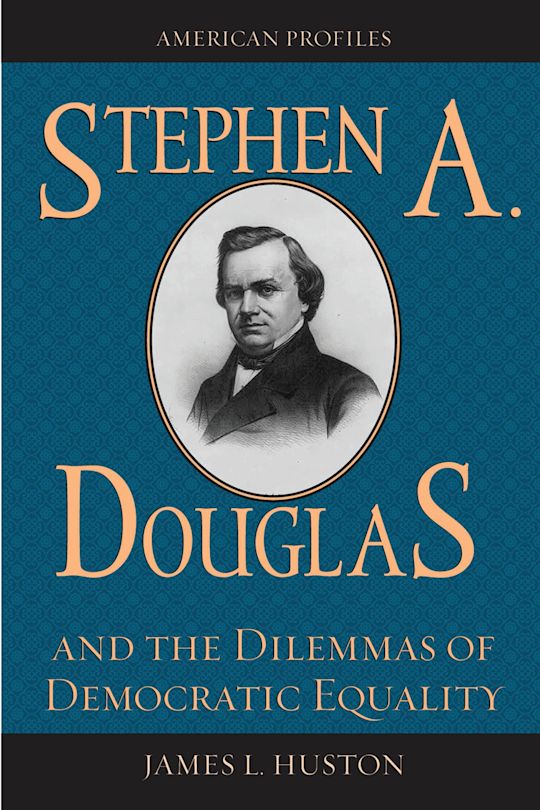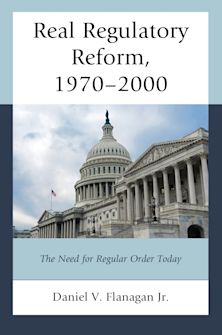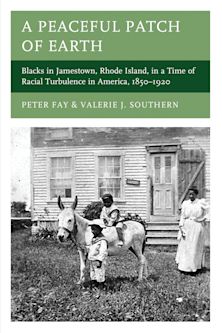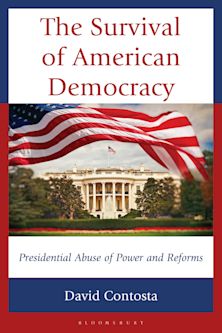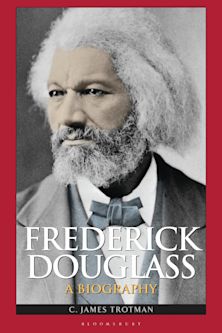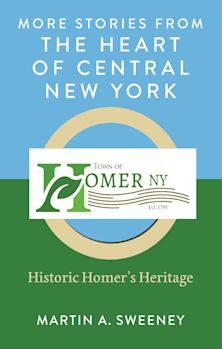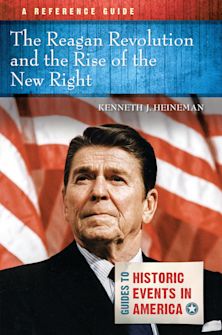- Home
- ACADEMIC
- History
- United States History
- Stephen A. Douglas and the Dilemmas of Democratic Equality
Stephen A. Douglas and the Dilemmas of Democratic Equality
This product is usually dispatched within 1 week
- Delivery and returns info
-
Free CA delivery on orders $40 or over
You must sign in to add this item to your wishlist. Please sign in or create an account
Description
Perhaps best known for his debates with Abraham Lincoln and his role in introducing the controversial Kansas-Nebraska Act, Stephen A. Douglas was a central character in the political firestorm that culminated in the American Civil War. In this engaging new biography, James L. Huston explores the life, ideology, and historical importance of America's "Little Giant."
Born in 1813, Douglas came of age during the great democratization of American life. This was a time when egalitarianism became the national creed and President Andrew Jackson stood forth as its champion. Huston sets Douglas in this social and political milieu, and examines the unfolding of the principles of democracy in and through his life. Douglas's political career as a state legislator, U.S. Congressman, and ultimately U.S. Senator from Illinois placed him at the center of the struggle over the meaning of democracy and equality at both the state and national level. The renown that his debates of 1858 with Lincoln of the Republican Party garnered is but an emblem of the status that Douglas had as a leader of the Democratic Party and as the representative of a specific interpretation of the Jacksonian legacy of democratic populism.
Huston places Douglas's life within the current historiographical controversies regarding the antebellum period and updates our understanding of the role that Douglas played in the creation of the Illinois Democratic party, the development of the ideals of Manifest Destiny, the struggle over slavery's extension into the West, the meaning of popular sovereignty, and the legitimacy of peaceful secession. Extensively researched and carefully documented, the book guides readers to original archival materials via a detailed bibliography and a section on the sources of Douglas's more famous statements.
Huston's impressive work is a novel and lively presentation that shows Douglas to be a figure paradigmatic of the political complexities of the United States during the antebellum era.
Table of Contents
Chapter 2: Democracy, Commerce, and Manifest Destiny
Chapter 3: The Compromise of 1850
Chapter 4: The Kansas-Nebraska Act and its Aftermath, 1851–1856
Chapter 5: Popular Sovereignty Fails: The Lecompton Constitution Battle, 1857–1859
Chapter 6: The Election of 1860
Chapter 7: Secession and the Limits of Democracy, 1860–1861
Essay on Sources
Product details
| Published | Dec 13 2006 |
|---|---|
| Format | Hardback |
| Edition | 1st |
| Extent | 224 |
| ISBN | 9780742534568 |
| Imprint | Rowman & Littlefield Publishers |
| Dimensions | 246 x 162 mm |
| Series | American Profiles |
| Publisher | Bloomsbury Publishing |
About the contributors
Reviews
-
Students tend to think that Stephen A. Douglas is famous because he lost his debates with Abraham Lincoln in 1858. Of course he won those debates and was reelected as Senator from Illinois. Indeed, Douglas was one of the most important and successful political figures of the 1850s. We have long needed a concise biography of Douglas and James Huston has now provided just that. We are in Huston's debt for his intelligent and well written assessment of Douglas, and for his clear analysis of the often misunderstood 'dilemmas of democratic equality.' Comprehensive and insightful, this book provides a perfect picture of Douglas and it should be used in classes on the coming of the Civil War.
William G. Shade, LeHigh University
-
Huston has written an excellent biography of a critical figure in antebellum America. This book would be a fine addition to any undergraduate course and excellent reading for professional historians.
Civil War Book Review
-
A pleasant surprise. . . . Huston's book joins the Rowman & Littlefield series American Profiles, brief biographies of major figures that are accessible to scholars and general readers alike. He brings the Little Giant to contemporary readers.
David Zarefsky, Owen L. Coon Professor Emeritus, Northwestern University and author of Lyndon Johnson, Vietnam, and the Presidency: The Speech of March 31, 1968, Journal of American History
-
James L. Huston's book presents an intriguing reinterpretation of the life of Illinois' famous antebellum senator.
Indiana Magazine of History
-
Huston's scholarship is always interesting and provocative and is so here as he explores Douglas's life. . . . This concise and informative work is a welcome addition to the literature about antebellum America.
Journal of Southern History
-
James Huston's terrific new book brims with fresh and important insights about Douglas and the political world he inhabited. Historians will want it on their shelves of antebellum studies and in paper as soon as possible for use in their classrooms.
Michael F. Holt, University of Virginia









